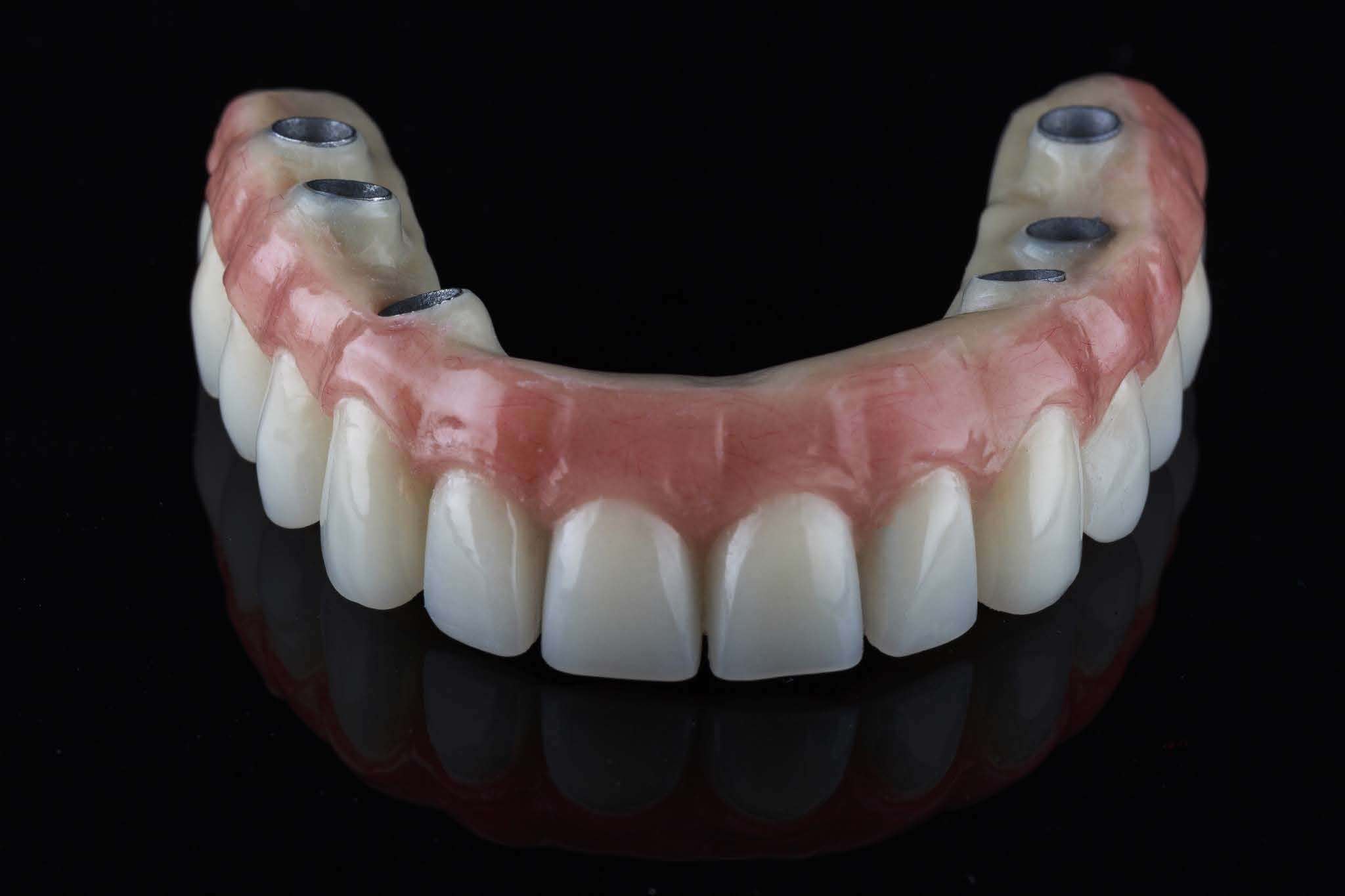Implants In Dentures: The Best of Both In One
When you’re exploring tooth replacement solutions there are a lot of factors to consider. Implants are known to offer a long-term tooth replacement solution with more durability and sturdiness. One mandatory for the placement of implants is strong jawbone support, coinciding with good bone density to support the implant.
The alternative to implants are dentures. They have long been the preferred option for patients requiring a full or partial dental replacement. Dentists create dentures from mouth impressions of the patient. They’re versatile and easy to clean. As with implants, dentures require strong jawbone support which with time can deteriorate therefore leaving dentures with little to hold on to.
In the article below we share the benefits of having implants in dentures – so you don’t have to pick one or the other!
How Implants In Dentures Work
Denture implants, like traditional dentures, replace lost teeth. The difference however is that they’re fastened to titanium posts that a dentist surgically plants into the jawbone. These posts are called implants, and they bond to the surrounding bone structure, resulting in a remarkably secure teeth replacement.
Patients can benefit greatly from implant-retained dentures as they provide the middle ground between traditional dentures and the costly advanced full-arch dental implants. If you’re looking at a cost-effective way to improve how you chew or smile, you no longer have to choose between having to use dentures or implants. You can have them both.
The implant’s support allows the dental fixture to fit properly in the mouth and reduce the denture bulk. This expands the palate to allow more space for the tongue, improving the sense of taste. Dentures that are supported by implants are more stable and don’t require the use of adhesive.

Eligible Candidates For Implants In Dentures
If you’re missing multiple teeth in the upper or lower jaw, you are a great candidate for implant-supported dentures. This being said, you must be in generally good health, have enough strong jawbone tissue to support dental implants, and be a non-smoker to qualify for dental implant surgery.
On the other hand, If your jawbone tissue is impaired it won’t be able to sustain an implant-supported denture. In this instance you will require bone grafting to restore your dental implant candidacy. As a result of this additional procedure the treatment duration will extend by two three months.
Why Choose Implant-Supported Dentures?
Denture implants are an adequate substitute for traditional dentures. Denture implants offer greater stability since the implants go into the tooth’s root instead of using adhesives and suction to fasten them. In comparison to traditional dentures, implant-supported dentures have been said to offer a more comfortable fit. Outlined below are additional reasons to opt for implants dentures:
● Offers A More Natural Look Unlike traditional dentures which run the risk of being misaligned, implant-supported dentures keep the dentures in place allowing for a more natural appearance.
● Boosts Jawbone Preservation Traditional dentures eventually become loose or ill-fitting primarily due to bone loss or degradation in the jaw caused by a lack of stimulation provided by the teeth. Gum size and form shrink as a result of bone loss, resulting in a poor fit. Dental implants are placed within the jawbone and offer the necessary stimulation to preserve the jawbone.
● Improved Social Confidence A person’s smile is typically the first thing people notice and it’s a great way to establish a positive first impression. When dentures are secured in place by implants, it relieves you of the need to feel overly conscious about your teeth, ultimately restoring confidence in your smile and social interactions.
● Reduced (if any) Food Restrictions When wearing traditional dentures there are some foods that are usually difficult to consume. This typically happens because a heavy bite can cause the denture to slip out, therefore restricting whole food groups. With implant-supported dentures this is no longer a concern as they almost restore your teeth’s natural biting and chewing capacity.
● Limited Maintenance Dentures need to be removed before going to sleep to avoid choking. More often than not due to this consistent removal process the dentures require additional adhesive to be re-fitted. With implant-retained dentures there’s no need for the use of adhesives, the mechanism used in full denture implants or partial implants keeps them securely in place.
● Longevity Traditional dentures have the potential to break or degrade over time; they need to be replaced in these instances. Dentures that are supported by implants are more durable and require less maintenance. In addition, a patient will incur fewer dental costs as replacements, creams, and adhesives are not required.
Traditional dentures may be less expensive and need lesser preparation initially, but implant-supported dentures can offer significantly better long-term advantages. They have the capacity to save time, expenses, pain, and dissatisfaction in the long run.
Conclusion
There are multiple ways and avenues to explore to save money on the implementation of dentures as a pensioner. Our advice is to shop around for the best deal. Prices and availability vary considerably between dental clinics so it is worth conducting a thorough search before choosing one clinic.





